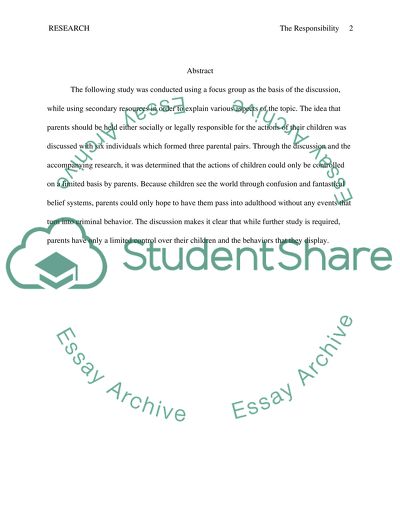Cite this document
(“The Responsibility of Parents in the Crimes Commited by Children Research Paper”, n.d.)
Retrieved from https://studentshare.org/family-consumer-science/1400351-the-responsibility-of-parents-in-the-crimes-commited-by-children
Retrieved from https://studentshare.org/family-consumer-science/1400351-the-responsibility-of-parents-in-the-crimes-commited-by-children
(The Responsibility of Parents in the Crimes Commited by Children Research Paper)
https://studentshare.org/family-consumer-science/1400351-the-responsibility-of-parents-in-the-crimes-commited-by-children.
https://studentshare.org/family-consumer-science/1400351-the-responsibility-of-parents-in-the-crimes-commited-by-children.
“The Responsibility of Parents in the Crimes Commited by Children Research Paper”, n.d. https://studentshare.org/family-consumer-science/1400351-the-responsibility-of-parents-in-the-crimes-commited-by-children.


